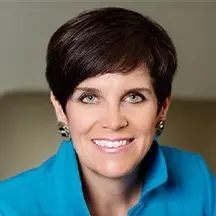Success Through Serving an Overlooked Need
Wealth manager Lisa Kirchenbauer’s success is rooted in a classic entrepreneurial tenet: Find a need that’s not being addressed in the marketplace, then become a go-to solutions provider to meet that need.
Kirchenbauer’s firm, Omega Wealth Management in Arlington, Virginia, focuses largely on the pain point of estate settlement—handling the financial affairs of a recently deceased loved one. It’s an underserved area of wealth management where many clients want help. Consider that while 92 percent of affluent investors say they desire estate settlement advice, just 11 percent say they are receiving it.
That disconnect spelled opportunity for Kirchenbauer, who has made a name for herself in this space by (among other things) implementing a few key strategies that she recommends:
1. Set up the right fee structure. Kirchenbauer adopted a fee structure that enables Omega to serve this market profitably. “We have an annual planning fee plus a smaller assets-under-management fee, which is helpful with estate settlement because while the clients need help right away, the assets involved might not come to us for some time,” she explains. “The planning fee lets us deliver a big impact right from the start of the process—and positions us well for the future of the relationship.”
2. Go beyond investments. Kirchenbauer realizes that she needs to add value beyond simply helping her clients with their investments. To that end, she offers a suite of wealth management services to clients—including advanced planning areas that address often complex needs, such as life planning and navigating financial transitions.
An additional bonus: Dealing with estate issues and life planning gives Kirchenbauer a natural pathway to introducing multigenerational legacy planning solutions—and introduces current clients’ heirs to the firm.
3. Get deep with clients. Her work in those areas is supported by a comprehensive discovery process she learned from advisor coaching and consulting firm CEG Worldwide. It’s structured to go far beyond leaning about clients’ and prospects’ financial picture by uncovering their most important objectives, values, fears, intentions and other traits. Specifically the process covers seven key areas:
- Values
- Goals
- Relationships
- Assets
- Advisors
- Process
- Interests
The result: “We are able to get clients to tell us about themselves on a very deep level, which helps build trust quickly and, of course, enables us to add a lot more value to their lives,” she says.
In addition to a deep discovery process, Kirchenbauer has been trained as a Registered Life Planner®, and Certified Financial Transitionist and brings some unique life planning skills, training and tools to help clients navigate the emotional and personal side of transition—critical in being effective in helping families navigate the loss of a loved one.
4. Seek out high-value referrals. Coaching also helped Kirchenbauer recognize the business-building potential of developing strong working relationships with centers of influence (attorneys, accounts, etc.) who serve affluent clients. “Clients tend to refer laterally or downward but COIs tend to refer upward, introducing us to prospects with significant assets,” she notes. “That allows us to serve fewer, but more affluent, clients.”
All these factors—a deep level of client understanding, a full range of wealth planning tools in the mix, a smart fee structure, and relationships with ideal referral sources—have helped Omega grow its revenue by nearly 20% annually in recent years. Says Kirchenbauer, perhaps with too much modesty, “We’re in a great position.”
LISA KIRCHENBAUER
Founder and President | Omega Wealth


